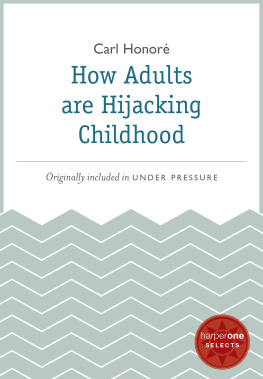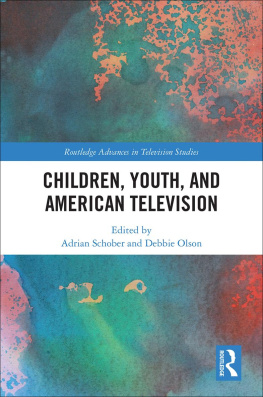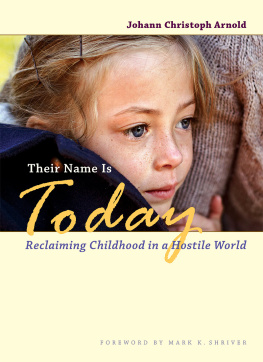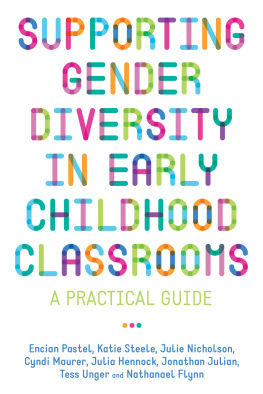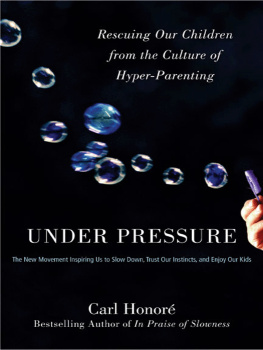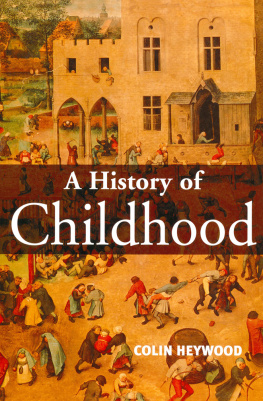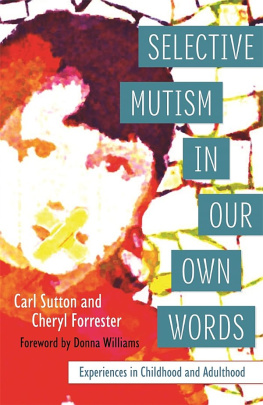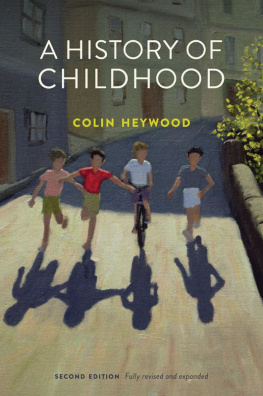On these magic shores, children at play are forever beaching their coracles. We too have been there. We can still hear the sound of the surf, though we shall land no more.
J. M. Barrie, Peter Pan
O n a summer afternoon toward the end of exams, the ancient colleges of Oxford are a playground for gilded youth. Sunshine warms the stone buildings as a breeze riffles the ivy clinging to the eaves. At Magdalen College, students from around the world hang out on lawns of putting-green perfection, reading newspapers, chatting on mobile phones, listening to iPods. A croquet game starts up, sending laughter echoing round the old quad. This is a snapshot of the new elite at rest. To paraphrase Cecil Rhodes, father of the Rhodes Scholarship program, these young people have won first prize in the lottery of life.
Or have they? George Rousseau, codirector of Oxford Universitys Centre for the History of Childhood, is not so sure. We meet in the old smoking room of Magdalen College. Faded paintings of rural scenes hang on the paneled walls. Professors chat donnishly over cups of tea and coffee beneath a beamed ceiling. From our worn leather armchairs we can see students ambling across the courtyard below. Rousseau, who has spent thirty-five years teaching at elite colleges on both sides of the Atlantic, kicks off by telling me that twenty-first-century children get a raw deal.
I feel sorry for many young people today, particularly those in affluent families, he says. They dont face the threat of death and disease that earlier generations did, and they have many advantages, but they are also nannied, pressured, and overprotected to the point of suffocation. They are left with no sense of freedom.
If that is going to change, then we must first understand how childhood evolved into its present form. This is not an easy task, Rousseau tells me. Generalizations are hard to make because childrens lives vary so widely, not only across time but also across social classes and cultures. The history of childhood as an academic discipline only really took off in the 1960s, and even now our knowledge of adult-child relations in the premodern era remains patchy. The result is a lot of speculation and guesswork, says Rousseau.
One common myth is that childhood did not exist at all in the past. This idea entered conventional wisdom in the 1960s when Philippe Aris, a French historian, argued that children in medieval Europe were treated as miniature adults from the moment they were weanedwearing the same clothes, enjoying the same entertainment, working the same jobs as everyone else.
Aris was right that the distant past was a very adult place, but his claim that our forebears had no conception of childhood and therefore never treated children differently was wide of the mark. Two thousand years before NetNanny, Plato insisted that a society should monitor what its young see, hear, and read. Even the Rule of Benedict, the leading monastic guide in medieval Europe, stipulated that child monks be granted extra food and sleep, as well as time to play. Aris came up with a compelling narrative for his time but it was partly wrong, or at least incomplete, says Rousseau.
Another misconception is that, hardened by high death rates, parents in earlier times avoided forging an emotional bond with their offspring, treating them instead like disposable servants. Families often recycled the name of a dead child by giving it to a sibling. In the first century A.D ., the Roman philosopher Seneca recommended mutilating children to make them more effective beggars. Not long after, a Greek gynecologist named Soranus published a book with a ruthlessly Darwinian title: How to Recognize the Newborn That Is Worth Rearing. Killing or abandoning unwanted babies was surprisingly common in the West right up until the nineteenth century. As late as the 1860s, a third of all infants born in Milan were dumped in doorways or left at the foundling hospitals set up to handle the deluge. Plenty of evidence suggests that beatings, neglect, and sexual abuse of children were endemic in many cultures. Lloyd deMause, an American psychotherapist-cum-historian, famously concluded in 1974 that the history of childhood is a nightmare from which we have only begun to awaken.
But there is another side to the story. Even if life in the past was harsh, the parents of yesteryear did not necessarily regard their children as chattel unworthy of sentiment. Mothers who abandoned babies often left them with keys, brooches, and other tokens in the hope of being reunited one day, even if in heaven. Across the ages, diaries, letters, and journals reveal parental love and tenderness flourishing when life was at its cheapest. Just listen to Gregory of Tours lamenting the fallout from a famine in sixth-century France: We lost our little ones, who were so dear to us, whom we cherished in our bosoms and dandled in our arms, whom we fed and nurtured with such loving care. As I write, I wipe away my tears.
And yet much has changed. Even if our ancestors were no strangers to parental love or the idea of childhood, even if they felt a similar instinct to cosset, control, and burnish the young, most of them were not obsessive about children. This constant pushing, monitoring, and nannying of the young is very much a feature of the modern world, says Rousseau.
The shift began after the Middle Ages, as new ways of thinking took hold. The Puritans declared that all babies were born with the stain of original sin and that only vigorous adult intervention could save their souls. The philosopher John Locke, whose views carried enormous weight across Europe, cranked up the pressure by publishing in 1693 a book called Some Thoughts on Education, which argued that a child enters the world as a tabula rasa, or blank slate, just waiting to be filled up (by adults, of course).
Later, Jean-Jacques Rousseau, one of the philosophers who inspired the Romantic movement, which swept across Europe from the late eighteenth century, told adults to back off. He argued that childhoodits games, its pleasures, its amiable instinctshould be cherished for itself rather than exploited as the means to an end; that children were born pure, spontaneous, and joyful and should therefore be left to learn and create at their own pace. Fired by this Romantic ideal, artists like Joshua Reynolds and Thomas Gainsborough began painting children as little angels at play, while writers like William Wordsworth and Johann Wolfgang Goethe exalted the child as a quasi-divine creature possessed of a special bond with nature.
Even today we remain torn between the Lockean and the Romantic approaches to childhood: Should we mold kids like putty, or relax and let them be children? Either way, both philosophies, together with rising prosperity, helped nudge children up the agenda. This change came first to the upper and middle classes, which gradually paved the way for a broader cultural shift. Etiquette manuals started giving advice on how to educate and groom the young in the seventeenth century. The market for clothes, books, toys, and games designed especially for children took off soon after. Around the same time, doctors began exploring how the young might benefit from specialized medical care, thus laying the foundations for pediatrics to emerge later as a separate field of medicine. And as the focus on children intensified, so, too, did parental worry. In the late eighteenth century, long before SATs and stranger danger, an English clergyman named John Townsend wrote of fond and anxious parents, who have sacrificed your ease, your rest, your worldly property, your health, your all, for the comfort and prosperity of your offspring. By the nineteenth century, child welfare was an important subject of debate among intellectuals, reformers, charities, and bureaucrats, with the first movements for child rights springing up and states enacting laws and creating welfare programs to protect the young.

